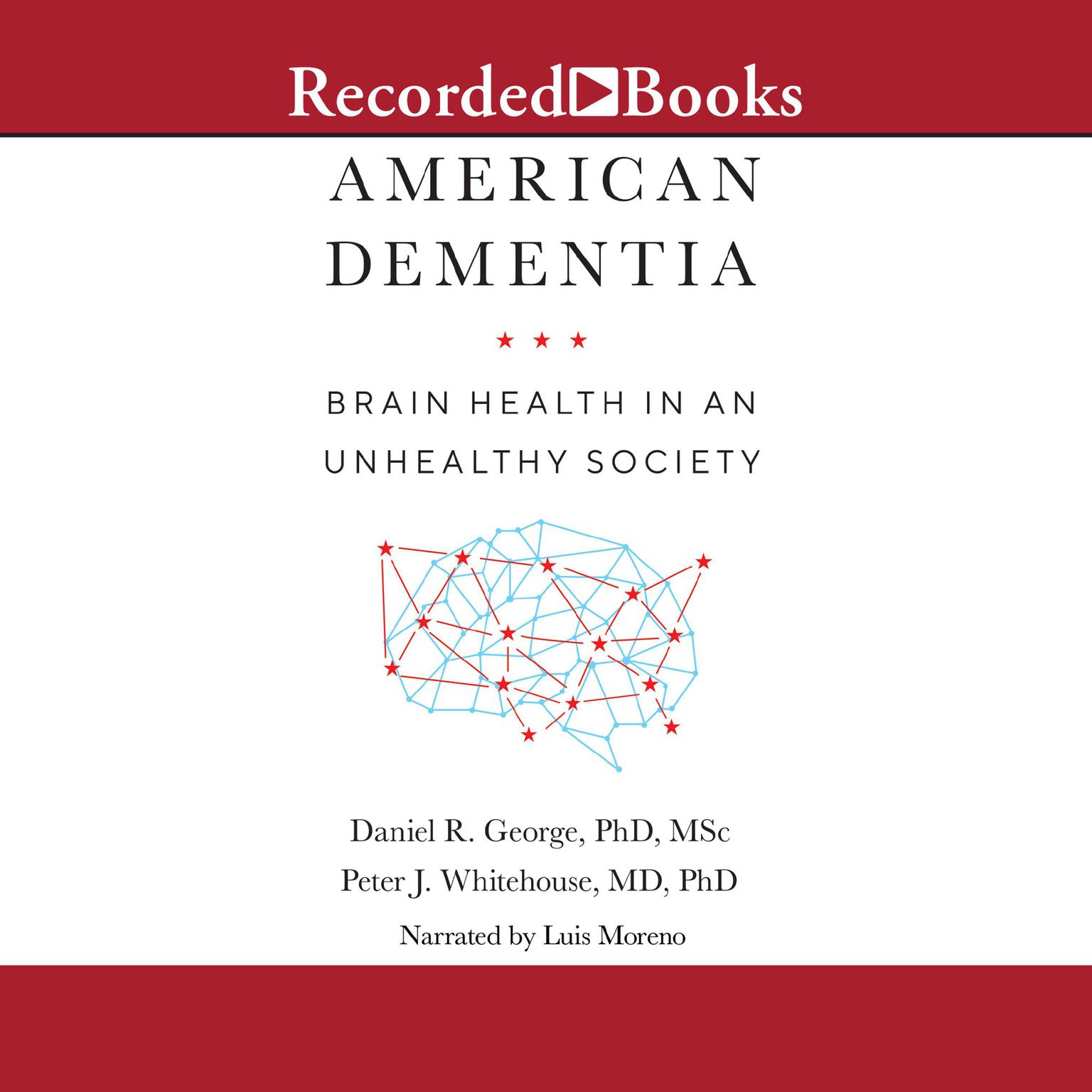 Play Audiobook Sample
Play Audiobook Sample
American Dementia: Brain Health in an Unhealthy Society Audiobook
 Play Audiobook Sample
Play Audiobook Sample
Quick Stats About this Audiobook
Total Audiobook Chapters:
Longest Chapter Length:
Shortest Chapter Length:
Average Chapter Length:
Audiobooks by this Author:
Publisher Description
For decades, researchers have chased a pharmaceutical cure for memory loss. But despite the fact that no disease-modifying biotech treatments have emerged, new research suggests that dementia rates have actually declined in the United States and Western Europe over the last decade. Why is this happening? And what does it mean for brain health in the future? In American Dementia, Daniel R. George, PhD, MSc, and Peter J. Whitehouse, MD, PhD, argue that the current decline of dementia may be strongly linked to mid–twentieth century policies that reduced inequality, provided widespread access to education and health care, and brought about cleaner air, soil, and water. They also • explain why Alzheimer’s disease, an obscure clinical label until the 1970s, is the hallmark illness of our current hyper-capitalist era; • reveal how the soaring inequalities of the twenty-first century—which are sowing poverty, barriers to health care and education, loneliness, lack of sleep, stressful life events, environmental exposures, and climate change—are reversing the gains of the twentieth century and damaging our brains; • tackle the ageist tendencies in our culture, which disadvantage both vulnerable youth and elders; • make an evidence-based argument that policies like single-payer health care, a living wage, and universal access to free higher education and technical training programs will build collective resilience to dementia; and • promote strategies that show how local communities can rise above the disconnection and loneliness that define our present moment and come together to care for our struggling neighbors. Ultimately, American Dementia asserts that actively remembering lessons from the twentieth century which help us become a healthier, wiser, and more compassionate society represents our most powerful intervention for preventing Alzheimer’s and protecting human dignity. Exposing the inconvenient truths that confound market-based approaches to memory enhancement as well as broader social organization, the book imagines how we can act as citizens to protect our brains, build the cognitive resilience of younger generations, and rise to the moral challenge of caring for the cognitively frail. A supplemental PDF is included with this audiobook.
Download and start listening now!
American Dementia Listener Reviews
Be the first to write a review about this audiobook!
About the Authors
Peter J. Whitehouse, MD, PhD is the director of integrative studies in the Department of Neurology at Case Western Reserve University and is the founding director of the University Memory and Aging Center at Case. He is a clinician at ElderHealth Center at University Hospital of Cleveland.
About Luis Moreno
Luis Moreno, a voice actor, has narrated several audiobooks throughout his career.


